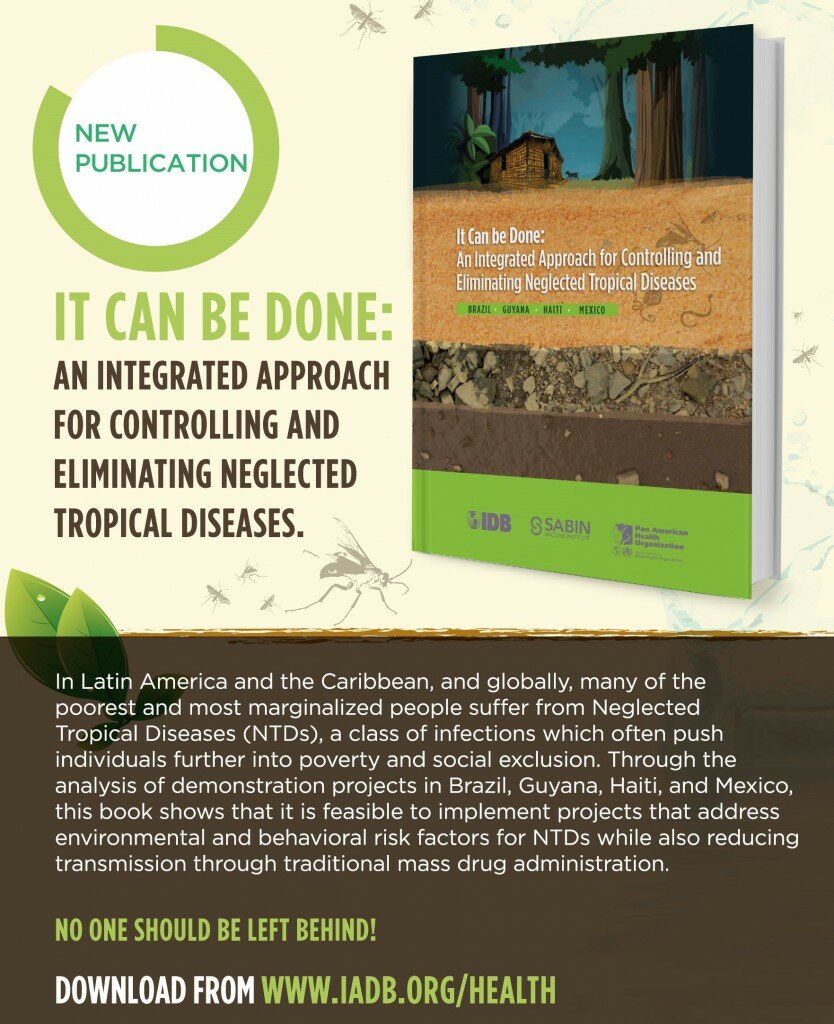
By Karen Palacio and Alex Gordon
This afternoon, hordes of journalists and TV newscasters huddled around one small toddler, creating a semi-circle two rows deep as they waited in anticipation. Moments later, the toddler opened her mouth and received deworming medicine — a simple but life changing act that on any other day may go unnoticed.
But today was different. In honor of Vaccination Week in the Americas (VWA), Members from the Pan American Health Organization (PAHO), the Ministry of Health of Honduras, and representatives from the Office of the President of Honduras, hosted a high-profile ceremony, highlighting the importance of vaccination, deworming and the integrated delivery of other health interventions.

Panelists at Honduras’ 2014 Vaccination campaign launch in Tegucigalpa, Honduras. From left to right: Dr. Karina Silva, local health department, Dr. Ida Molina, EPI Program Manager, Ministry of Health Honduras, Mr. Ricardo Alvarez, Representative from President Hernandez’s office, Dr. Yolani Batres, Minister of Health, Dr. Jon Andrus, PAHO Deputy Director, Dr. Alma Fabiola Morales, PAHO Honduras, and Dr. German Laborel, Representative from the faith-based community.
As Dr. Mirta Roses Periago mentioned in her previous blog post, VWA provides a much-needed platform to celebrate, showcase and implement the public health interventions that save lives and keep children and families thriving.
In Honduras, the ceremony that launched the two week campaign began with a prayer led by Padre Pablo Hernandez and the country’s national anthem.
Next, Dr. Ida Berenice Molina, head of Honduras’ Extended Program for Immunization (EPI) program, delivered remarks on the 12th anniversary of Vaccination Week of the Americas and Honduras’ consistent and impressive coverage rate of over 90 perecent for vaccinations since 1991.
Following Dr. Molina, Dr. Jon Andrus, Deputy Director of PAHO, highlighted the importance of the integration of vaccination and other health interventions such as deworming. This year’s slogan, “Vaccination, Your Best Shot” was selected as the call to action in the context of this year’s upcoming World Cup in Brazil. It is estimated that more than 63 million people in 180 countries and territories in the Americas will be vaccinated over the next two weeks.
Dr. Andrus also highlighted the opportunity that Vaccination Week offers to deliver other critical interventions such as deworming, Vitamin A, health education and lactation consultation, among others.
Historically, Honduras has been one of Latin America’s leaders in health and integration. In addition to holding high vaccination rates, Honduras was also the first country in the Americas to launch a national plan of action against neglected tropical diseases (NTDs) in 2012. After the plan’s launch, Honduras quickly began a demonstration project that expanded deworming to preschool children as part of vaccination week in six municipalities.
Now, two years later, the deworming of preschool children has been institutionalized as part of national vaccination week activities. This compliments the national campaign for school age children which is implemented in coordination with World Food Programme, UNICEF, Operation Blessing and other stakeholders.
Continuing with the presentations, Dr. Ricardo Alvarez, a representative from President Juan Orlando Hernandez’s office gave remarks on the political commitment to saving lives through vaccine preventable diseases and essential medicines that prevent and control NTDs.
And lastly, Dr. Edna Yolani Batres from the ministry of health remarked that VWA offers some of the best investments in public health. She called on partners to continue to join the Ministry of Health of Honduras in assuring the quality of life of millions of Honduran children and families continue to be improved through the services provided during Vaccination Week.
The speeches and presentations were followed by a series of vaccinations and the provision of deworming medicine and vitamin A supplementation. Members from PAHO and the Ministry of Health ceremoniously aided in the delivery of the health interventions as crowds gathered to watch babies, toddles, and pregnant mothers receive vaccines, deworming medicine and vitamins.
We were extremely happy to see these cost-effective health interventions and the nurses and doctors delivering them, receiving the attention they deserve. Through an integrated approach to public health, Honduras is providing smart opportunities for its population to remain healthy and thriving.






